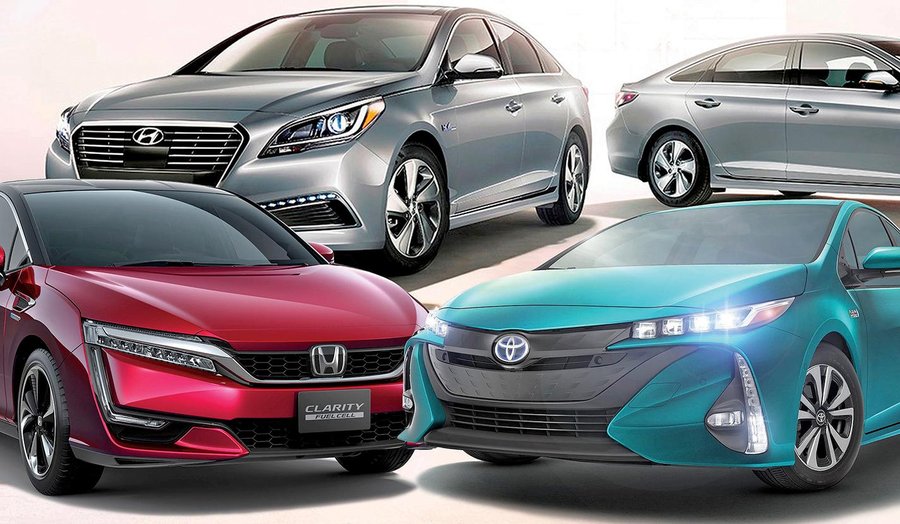Honda, Hyundai And Toyota Coalesce On Near-Term Green Strategy

More than other mainstream automakers, those three have made it clear that they see hydrogen, and not batteries, as the future of propulsion and green transportation.
But with the scant fueling infrastructure, massive development costs and low consumer adoption, it likely will be decades before hydrogen vehicles are common. As gung-ho as the three automakers are about fuel cells, they know an interim step is essential.
Cue the plug-in hybrid.
Over the next several years, Honda, Hyundai and Toyota plan to fortify their vehicle lineups with PHEVs, citing them as a crucial steppingstone for consumers, the industry and the effort to meet global fuel efficiency and emissions regulations.
The adoption will be relatively quick as the Asian brands try to catch up with American and German counterparts that embraced PHEVs sooner. And it will spread beyond the Prius, Ioniq and Clarity hybrid subbrands to the meat of each company's lineup.
PHEVs not only help automakers fulfill their regulatory obligations but also can be cheaper to buy and own than basic hybrids, once the more generous government incentives are factored in, noted Dave Zuchowski, CEO of Hyundai Motor America.
Plug-in hybrids have been a rare bright spot in an otherwise dismal green-car industry. U.S. sales of PHEVs grew 40 percent in the first quarter of 2016, according to Edmunds.
Of the three automakers, Toyota potentially has the biggest head start, thanks to a full stable of four regular hybrids that it could adapt as PHEVs -- not including the Prius line, which will add the plug-in hybrid Prime variant later this year.
"The next iteration of extending mileage is probably going to be plug-ins, because that takes the least amount of r&d," Jim Lentz, Toyota Motor North America CEO, told Automotive News at the New York auto show in March.
There's also plenty of unrealized efficiency to squeeze out of a plug-in hybrid.
"Every time you improve the battery or you improve the [internal combustion engine], then you improve the overall range and mileage of a PHEV," Lentz said. "So to me that's the next big move in volume."
Toyota declined to say when or which vehicles it would begin moving to PHEV powertrains, though the next-generation Camry that's expected to debut next year could be an early candidate.
Hyundai is eyeing its current hybrid lineup both for expansion and the addition of PHEV versions. The effort will be in addition to its upcoming Ioniq lineup of hybrid, electric and PHEV models.
Unlike Honda or Toyota, Hyundai currently has a core model with a PHEV variant, the Sonata. (Honda briefly sold an Accord plug-in hybrid in limited U.S. markets.) While the Sonata is Hyundai's only model offered as a hybrid, there are development plans, including crossovers and the nascent Genesis luxury brand, "that will take care of that void," Zuckowski said.
"Every one of our hybrids will have plug-in derivative," Zuchowski said.
Honda -- with its recently announced goal of electrifying two-thirds of its vehicles by 2030 -- will also add plug-in hybrid variants of its core models, separate from its forthcoming Clarity line, which will include a fuel cell model this year and PHEV and all-electric versions next year.
"Globally we're committed to offering a plug-in variant on our major core models in the future," John Mendel, executive vice president of American Honda Motor Co., said in announcing the Clarity plans last month.
Honda's next-gen CR-V, due next year, is a likely candidate to get a plug-in hybrid variant.
It will share a platform with the current Civic and the next Accord, which is also due in 2017 and is also a likely landing spot for a PHEV powertrain.
Related News


